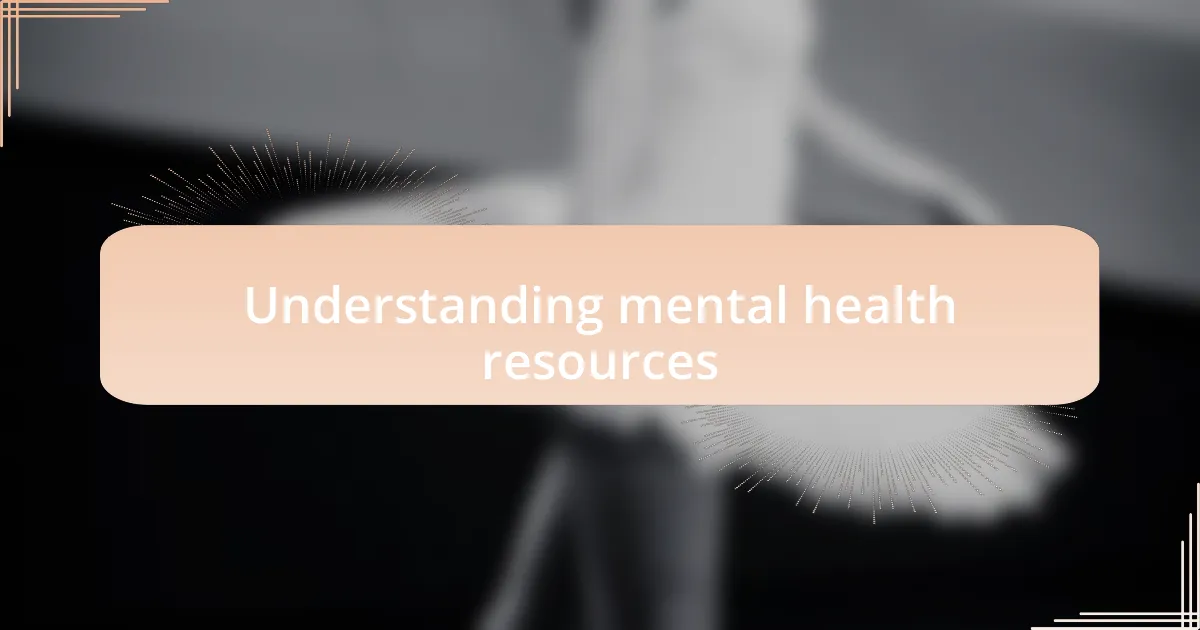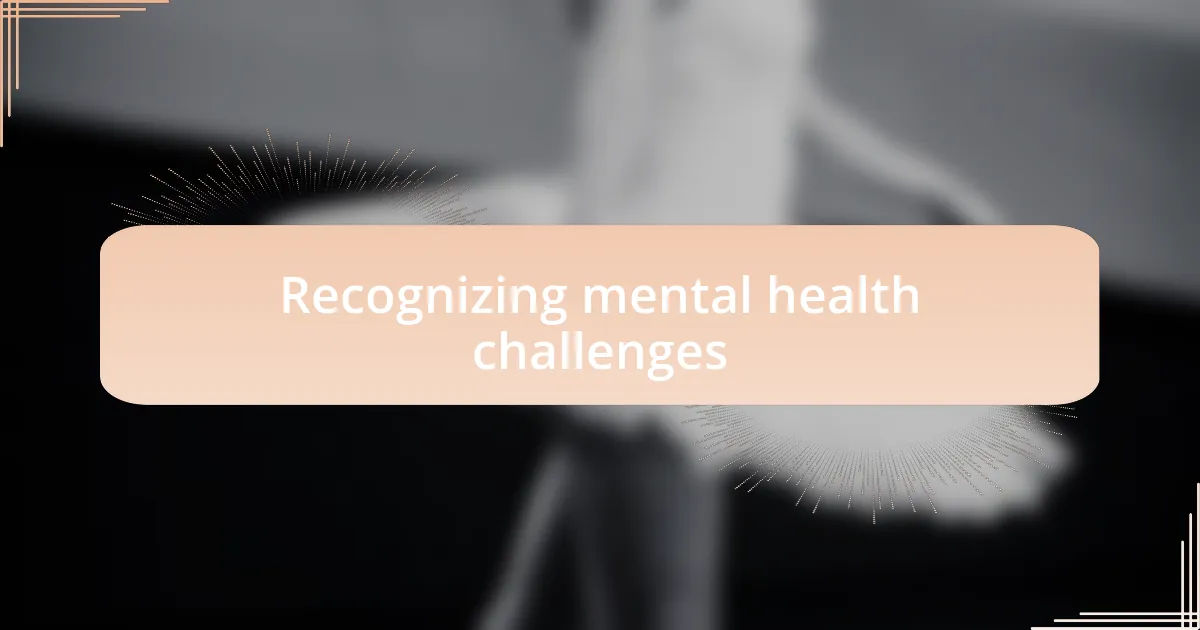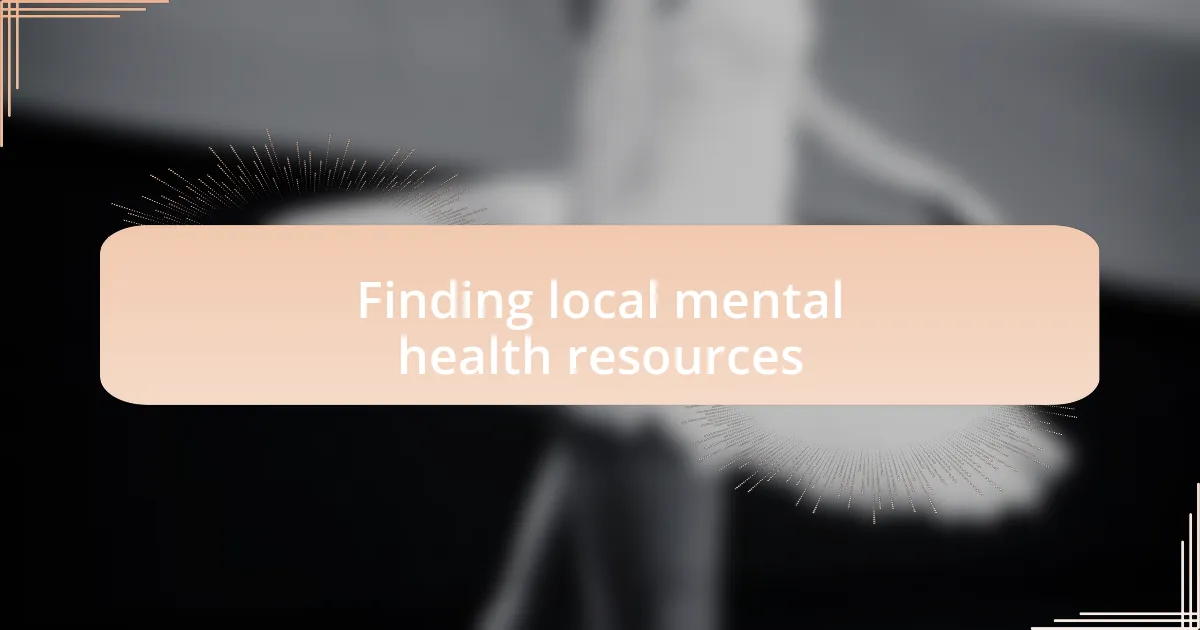Key takeaways:
- Mental health resources vary widely, and finding the right type for individual needs (e.g., therapy vs. online tools) is crucial for effective support.
- Self-reflection helps in recognizing mental health challenges, as consistent feelings can indicate the need for professional help.
- Exploring local community resources and engaging in conversations can uncover valuable support networks and options that may not be widely known.
- Online platforms and apps can facilitate access to mental health resources, making it easier to connect with local therapists and support systems.

Understanding mental health resources
When I first delved into mental health resources, I was surprised by how many options were available. I remember feeling almost overwhelmed, thinking, “Where do I even start?” This realization made me appreciate the importance of understanding the landscape of mental health support, from therapy and counseling to helplines and online communities.
Once, I found myself in a tough spot, grappling with anxiety after a competitive event. In that moment, I turned to an online resource that offered tools for managing stress. It was a game-changer for me. I learned that mental health resources are not one-size-fits-all; they can be tailored to individual needs, whether you prefer face-to-face interactions or digital guidance.
I often question, “How do I know which resource is right for me?” From my experience, it’s essential to assess what you’re comfortable with. For example, if chatting with someone feels daunting, exploring apps or forums might be the ideal first step. The key is to seek options that resonate with your unique journey, ensuring you feel supported and understood.

Recognizing mental health challenges
Recognizing mental health challenges often begins with self-reflection. I remember the moment I acknowledged the heavy weight of my anxiety during rehearsals—my heart would race, and I felt paralyzed. It was then I realized that these feelings weren’t just nerves; they were indicators of a deeper challenge.
As I explored my mental health further, I discovered that understanding these signs is crucial. Sometimes, I would dismiss feelings of sadness or irritability as just a rough day. But I learned that paying attention to these emotions helped me identify patterns and acknowledge when it was time to seek help. How do we differentiate between a bad day and a mental health challenge? It’s a question I’ve pondered, and I found that consistency in feelings can often signal a need for support.
There was a time when I noticed my motivation waning; the thought of participating in a breaking session felt overwhelming. This was a wake-up call for me, pushing me to seek resources. Acknowledging these mental health challenges is the first step toward taking action—it’s about recognizing when something doesn’t feel right and allowing ourselves to reach out for help.

Finding local mental health resources
Finding mental health resources in your local community can feel daunting, but I’ve found that a simple search can open many doors. When I looked for support, I began by visiting community centers and local clinics; there, I discovered dedicated mental health services. I remember chatting with a friendly counselor at one center who not only listened to my concerns but provided me with a list of local resources I hadn’t even known existed.
Another effective approach is reaching out to friends or fellow b-boys and b-girls in the community. I was surprised when a fellow dancer shared his experience with a local support group, showing me that vulnerability can foster connection. Have you ever thought that sharing your struggles might lead you to find someone who’s been in your shoes? I learned that having those conversations can uncover a treasure trove of resources that might not be publicly advertised.
Don’t overlook online platforms that list local mental health resources. Websites and apps specifically designed to connect individuals with therapy options can be incredibly useful. I recall stumbling upon a mental health app that matched me with local therapists based on my specific needs—an eye-opening experience that made me realize how tech-savvy tools can bridge the gap for those of us in tight-knit communities like ours. Exploring these options not only empowers you but also encourages accountability in your journey toward better mental health.